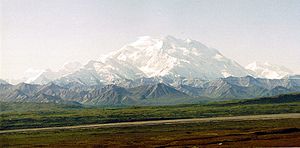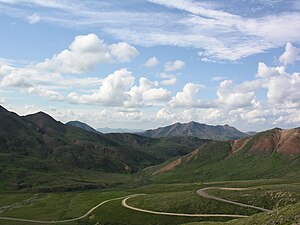 |
| (Photo credit: Wikipedia) |
The Rock Creek Bridge, located just east of park headquarters, is an essential year-round link on the only road into Denali National Park. The bridge's 24-foot width, combined with its curved design, often results in westbound RV trailers and semis tracking into oncoming traffic in the eastbound lane, creating a traffic hazard. The FHWA has also identified the bridge as one of two seismically deficient bridges on the Denali Park Road.
The Environmental Assessment evaluates three action alternatives. The preferred alternative would replace the bridge with an 18-foot diameter culvert, with an embankment at the level of the existing bridge. Another alternative would include retrofitting the existing bridge for seismic stability and width. A third action alternative would include constructing a new bridge directly downstream of the existing bridge.
The NPS has published an environmental assessment (EA) for this project entitled "Rock Creek Bridge Replacement." It is available at the NPS planning website at http://parkplanning.nps.gov. The EA analyzes the impacts of the "No Action" alternative and the three action alternatives. It was completed in accordance with the National Environmental Policy Act of 1969 and the regulations of the Council on Environmental Quality (40 CFR 1508.9).














